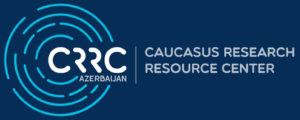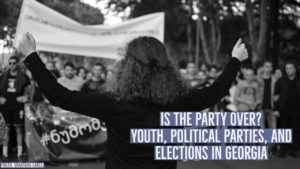
Kurt Volker/Shutterstock
A former U.S. diplomat says he has never seen Georgia so politically divided and warns that the country could retreat from the democratic progress it has made, Todd Prince, a senior correspondent for RFE/RL, reports.
“There is a risk of backsliding. The presidential elections that took place last year were deeply flawed,” Kurt Volker, who served as U.S. ambassador to NATO during the Russian-Georgian War in August 2008, told a conference in Washington, D.C. on September 23. “I think it is the most divided I have seen that country,” said Volker, who just returned from a trip to the Georgian capital, Tbilisi.
“It is really concerning when you have a country with such important external challenges, such important aspirations and the need for friends and support and engagement. It is hard for outsiders to do that when they are so divided internally,” he told the forum, organized by the Center for European Policy Analysis. Volker, now the executive director of the McCain Institute, is currently serving as the U.S. special envoy to Ukraine on a volunteer basis, Prince adds.
 No political party is supported by more than a fifth of citizens, according to a poll conducted by the National Democratic Institute, in partnership with the Caucasus Research Resource Center (CRRC), released on September 20. Georgian Dream secured 19 percent while the United National Movement, the leading opposition force, received 9 percent. Some six in 10 citizens are undecided 12 months before the October 2020 parliamentary polls.
No political party is supported by more than a fifth of citizens, according to a poll conducted by the National Democratic Institute, in partnership with the Caucasus Research Resource Center (CRRC), released on September 20. Georgian Dream secured 19 percent while the United National Movement, the leading opposition force, received 9 percent. Some six in 10 citizens are undecided 12 months before the October 2020 parliamentary polls.
Georgians are increasingly anxious about the political situation, according to the results of the poll, NDI adds:
- Perceptions of the country’s direction have hit their lowest levels since 2010, with 49 percent of respondents saying that the country is moving in the wrong direction. A majority (60 percent) believe that the government is performing poorly. Georgians also increasingly rate the performance of the prime minister, president, and parliament as “bad”.
 Georgians’ top concerns remain economic, including jobs, rising prices and inflation, and poverty. A total of 21 percent of respondents report that they are unemployed and actively looking for a job. Only a third feel that they are better off economically than their parents’ generation, while almost half (43 percent) believe they can afford less than five years ago.
Georgians’ top concerns remain economic, including jobs, rising prices and inflation, and poverty. A total of 21 percent of respondents report that they are unemployed and actively looking for a job. Only a third feel that they are better off economically than their parents’ generation, while almost half (43 percent) believe they can afford less than five years ago.- Recent events have further shaken Georgians’ trust in their government. When asked about the protests on June 20th, the majority blame government agencies for the violence that occurred (55 percent) and believe that the government used excessive force to disperse protestors (63 percent). Of those who believe that the government used excessive force, 71 percent do not believe that adequate action was taken to hold those responsible to account.
- With a shift to a fully proportional system with no threshold and a majority of Georgians undecided (55 percent), these elections likely will see an increase in the number of political parties vying for support and, most probably, entering parliament. To earn citizen support, parties will need to distinguish their policy platforms by offering competing solutions on citizen priorities such as the economy and healthcare.







